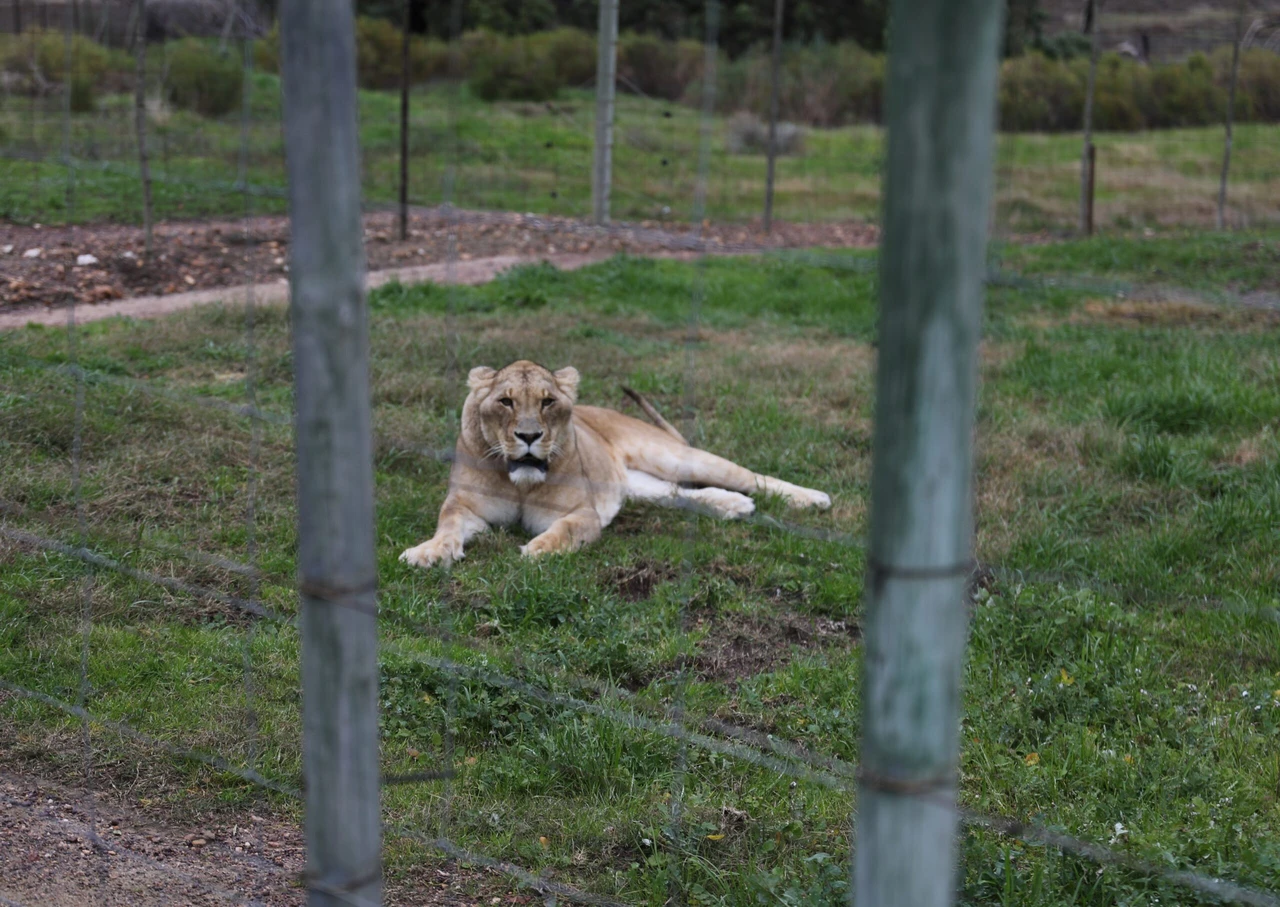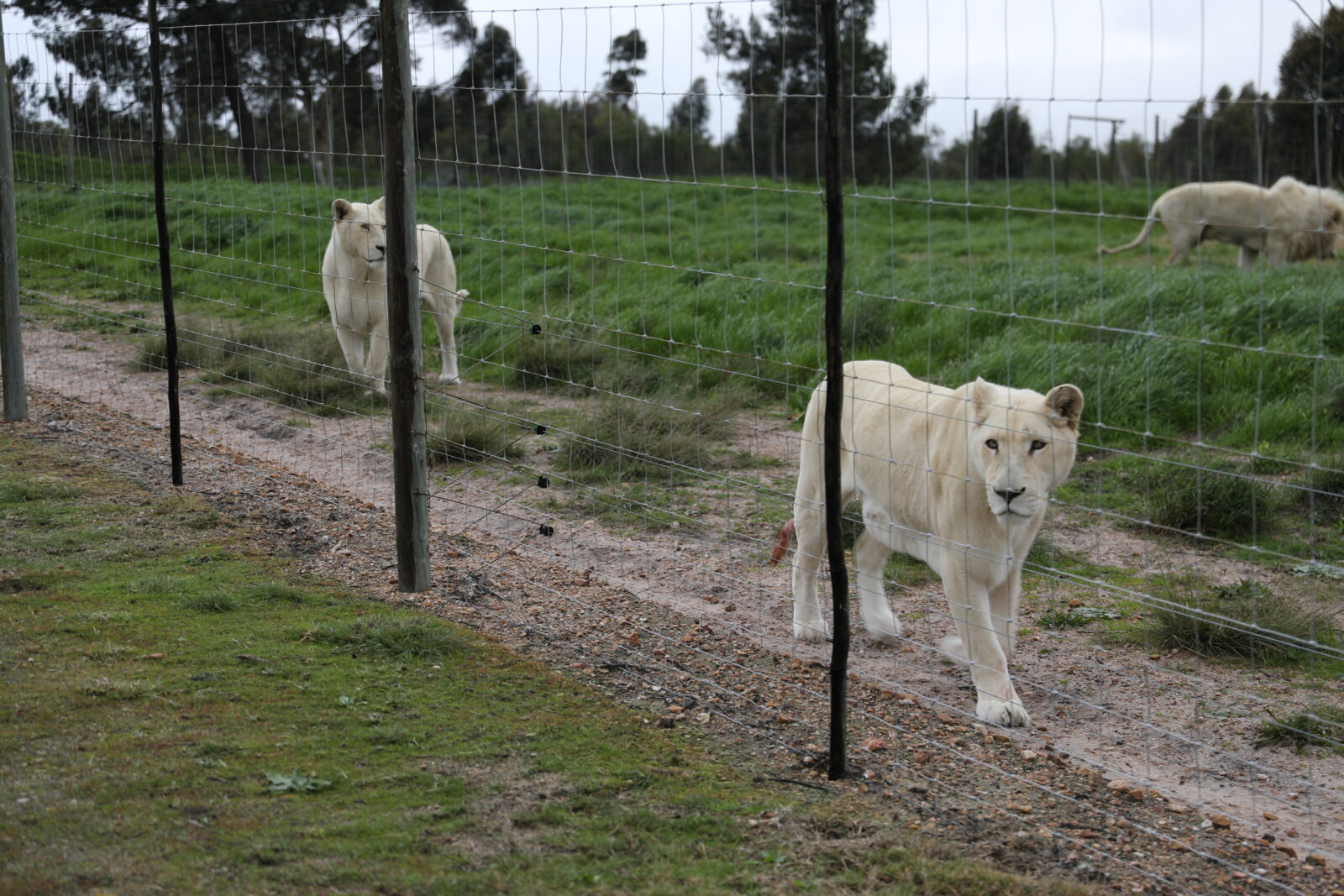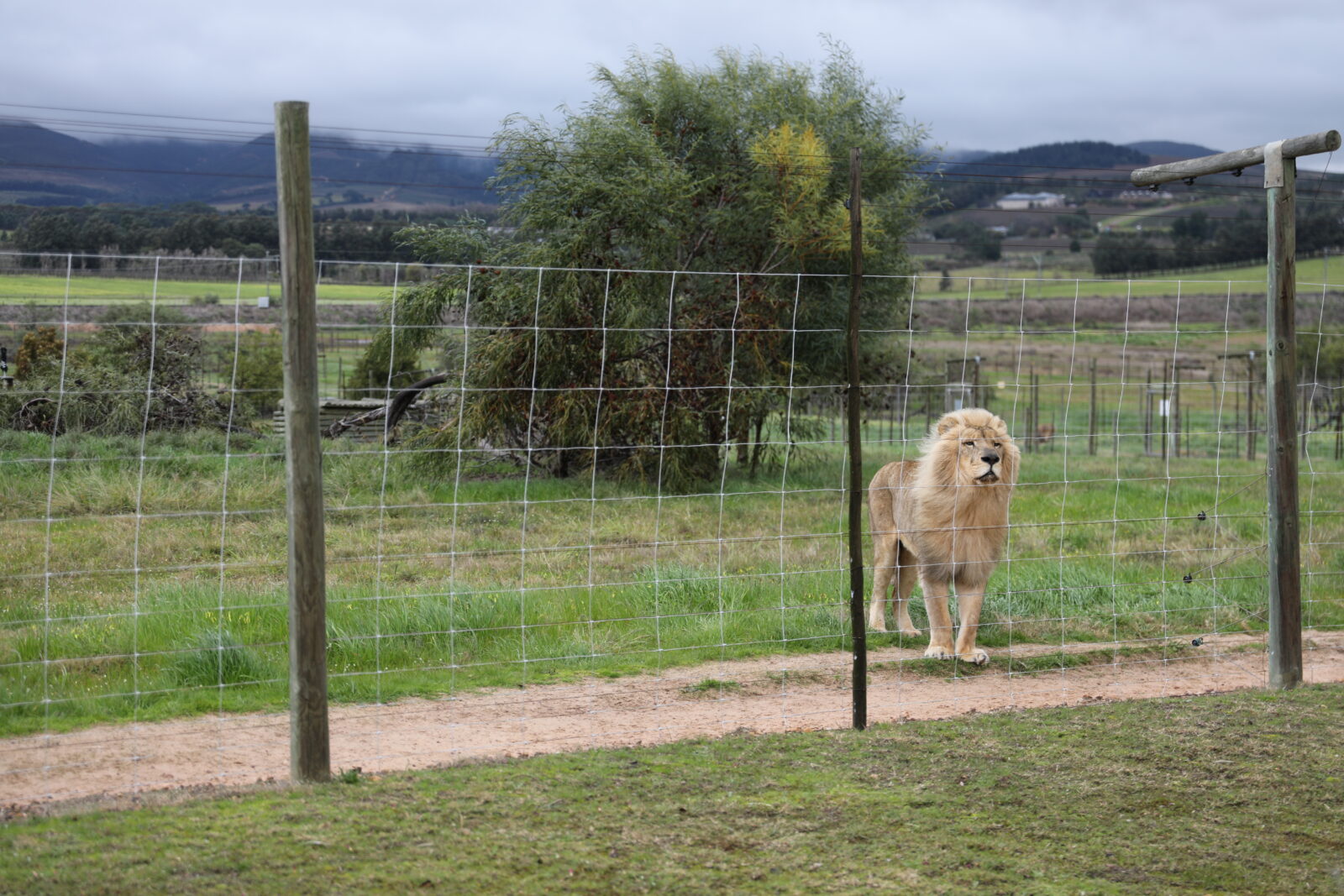Lion populations in freefall: Trophy hunting, illegal trade to blame
 "Captive lions" torn from the wild and raised in human captivity, Cape Town, South Africa, August 9, 2024 (AA Photo)
"Captive lions" torn from the wild and raised in human captivity, Cape Town, South Africa, August 9, 2024 (AA Photo)
Once numbering around 200,000 at the beginning of the millennium, lion populations have plummeted to a mere 23,000 by 2024. These majestic creatures, taken from their natural habitats, are now being bred in captivity for the sole purpose of being slaughtered by Western trophy hunters.
In addition to this alarming decline, there is a significant demand for the bones of lions from countries in the Far East.
As the world celebrates Lion Day on August 10, many lions still spend their lives entertaining tourists behind steel bars or are kept to be slaughtered in hunting events. Meanwhile, wild lions, having lost 95% of their natural habitat, struggle to survive in the African savannahs under harsh conditions.
According to estimates by the Oxford University Wildlife Conservation Research Unit, there were about 200,000 wild lions at the beginning of the last century. However, due to hunting and other human factors, this number has decreased to 33,000. Since 2001, the lion population has declined by 43%, and today it is estimated that about 23,000 lions remain in the wild.

What is relationship between captive lions and tourism?
South Africa is one of the countries with the largest “captive lion” population in the world. In this country, there are approximately 3,500 wild lions and 8,000 captive lions.
Captive lions contribute over $40 million annually to the South African economy. Safari tours are organized to allow tourists to see and photograph these lions up close.

What is current state of lion hunting and bone trade?
In South Africa, “captive lion” hunting is legal with special permits. Between 2014 and 2018, approximately 4,000 captive lions were hunted. The majority of these hunts were carried out by American tourists, followed by Spanish, Russian, Danish, Canadian, and German tourists. The bones of these hunted lions are used in luxury ornaments, jewelry, and aphrodisiac production, primarily in China and other Far Eastern countries.
The South African government, under pressure from national and international environmental organizations, is working to end the lion industry. The Department of Forestry, Fisheries, and the Environment announced in 2022 that it is working on various strategies to phase out this industry. However, despite the celebration of “Lion Day” on Aug. 10, the captive lion industry continues to exist legally.



